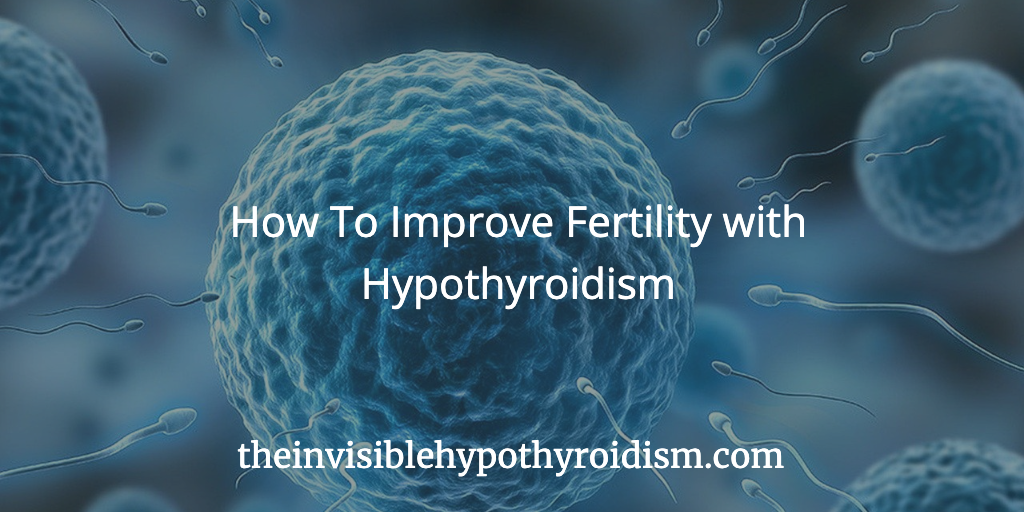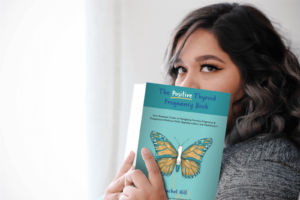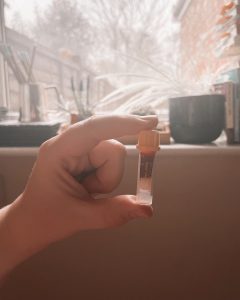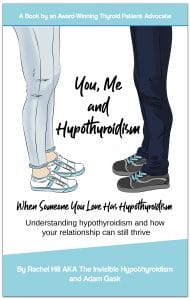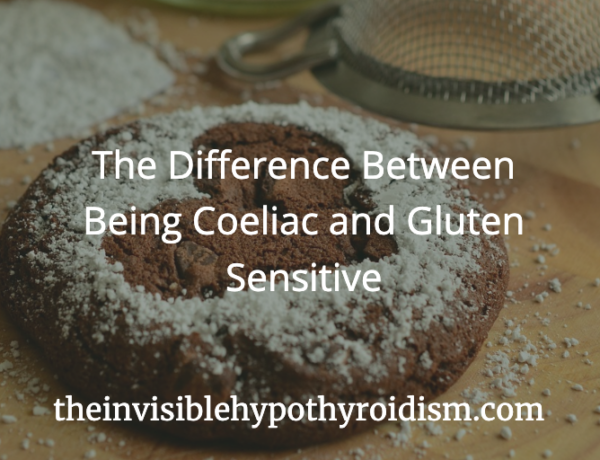Originally published on 25th Apri1 2017 Last updated on 2nd August 2023
Thyroid function and fertility are closely linked.
Abnormal thyroid levels in women can lead to miscarriage, pre-eclampsia, anaemia, stillbirth and, in pregnancy, the baby being born with congenital hypothyroidism.
Erectile dysfunction, infertility issues, low testosterone levels and lowered sperm mobility can affect fertility in men.
Yet some doctors don’t think to check thyroid hormone levels in relation to fertility.
This article looks at how fertility can be affected with thyroid disease and what we can do about it.
Don’t forget that The Positive Thyroid Pregnancy Book: Your Essential Guide to Navigating Fertility, Pregnancy & Postpartum Wellness With Hypothyroidism and Hashimoto’s also covers my two pregnancies with hypothyroidism and Hashimoto’s in a lot of detail, while also compiling ALL the info you need to know for the best start for you and your baby.
How Low Thyroid Hormone Levels Can Cause Infertility
Thyroid hormones directly affect the uterine lining, causing infertility or miscarriages to occur when they are abnormal. As well as complications during pregnancy, some women with low thyroid levels may even struggle to fall pregnant at all.
Hormones TSH (thyroid stimulating hormone) and TRH (thyrotropin-releasing hormone) are ramped up when thyroid hormones such as Free T3 and Free T4 fall too low; TRH to stimulate the pituitary gland to release TSH, which then instructs the thyroid gland to release more thyroid hormones T3 and T4.
Infertility can therefore occur when TRH, which is also responsible for stimulating the pituitary gland to release prolactin, causes the increased prolactin to interfere with the ovulation process, when thyroid hormones are low.
The increased prolactin levels (prolactin is also important for promoting lactation) can prevent the ovaries from releasing an egg each month, which makes it more difficult to conceive.
In men, hypothyroidism can cause erectile dysfunction, low testosterone levels (which can mean lower sperm count while testicles might appear larger) and lowered sperm mobility, all of which can impact fertility.
Where Can I Order Fertility Testing?
Testing for sex hormones and other indicators of fertility can be found here: UK test / US test.
But a fertility clinic can order a full spectrum of tests.
Ways To Maximise Your Fertility
Therefore, ensuring your thyroid levels, TSH, Free T3 and Free T4, are all optimal is crucial when trying to conceive, as well as addressing any imbalance of testosterone, progesterone or oestrogen etc.
For females, it is not recommended to try to conceive unless they know their thyroid levels are optimal and they have all their ducks in a row first.
Testing
Sex Hormone Testing (for: fertility, sex hormone imbalances, PCOS)
Oestrogen, Oestradiol
Progesterone
Testosterone
LH
FSH
Prolactin
This UK test checks almost all of these in one go (minus progesterone).
For a PCOS Blood Test, click here.
Thyroid Levels
If you’re ‘subclinical’ or ‘borderline’ hypothyroid, your doctor may wish to start you on thyroid medication or increase it so that you’re well within range to improve chances of conception and reduce the risk of miscarriage in women. The risk of miscarriage is higher in women with subclinical hypothyroidism, compared to women with normal thyroid function (euthyroidism)[1].
See related post: Are Pregnant Women With Thyroid Problems Considered High Risk?
A recent study also found that among women with diminished ovarian reserve or unexplained infertility, low Free T3 levels and positive thyroid antibodies (TPOAB) are associated with low antral follicle count. [3]
Tracking Your Cycle
Female thyroid patients can also start taking their basal body temperature, using a BBT thermometer, to get an idea of their cycle.
Even when I wasn’t trying to conceive, I took my BBT every morning to get an idea of my cycle, when I had an imbalance of seemingly too much oestrogen. I was able to tell when I was ovulating due to a sharp drop in my temperature and then rise for three days. It is debated whether “oestrogen dominance” is a real issue, but we can certainly explore the possibility.
Knowing if you are ovulating can not only show you when you have the highest chance of conceiving, but also if you’re actually ovulating and having normal cycles at all. And normal cycles are an indication of overall health as well as thyroid health.
I personally wasn’t ovulating for a year or so, due to too much oestrogen. By working with a functional medicine practitioner and going gluten-free, this resolved when my oestrogen levels came back within normal limits.
See also, the 11 things I specifically did to optimise conceiving with Hashimoto’s and hypothyroidism.
Feel free to share your experiences in the comments section below.
You can click on the hyperlinks in the above post to learn more and see references to information given.
See also:
You, Me and Hypothyroidism: When Someone You Love Has Hypothyroidism, a book for those who know someone with hypothyroidism. It looks at how parenting, fertility, home life and more can all be affected by hypothyroidism, and what you can do about it.
***
A book on thyroid disease and pregnancy: Your Healthy Pregnancy with Thyroid Disease: A Guide to Fertility, Pregnancy, and Postpartum Wellness
References:
[1] https://www.liebertpub.com/doi/10.1089/thy.2014.0029
[2] https://www.ncbi.nlm.nih.gov/pubmed/22869843
[3] https://www.healio.com/endocrinology/thyroid/news/online/%7B261992c4-bf53-4119-bb4b-9d554a7671d1%7D/thyroid-function-antibody-positivity-associated-with-ovarian-reserve-in-infertility

